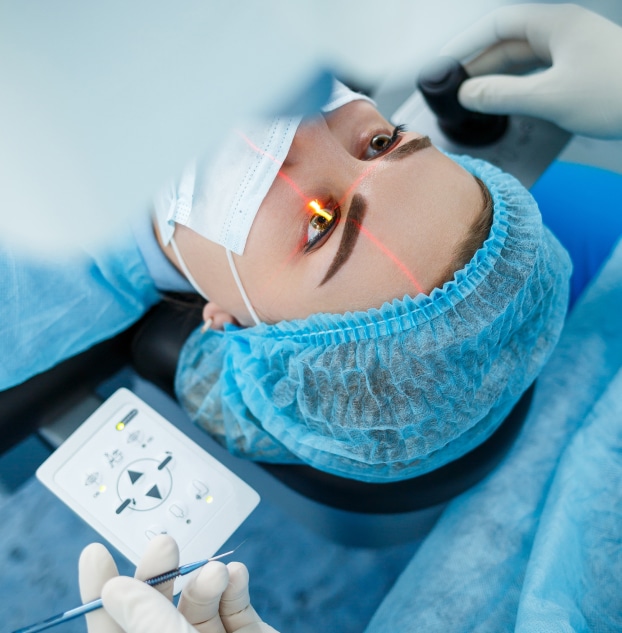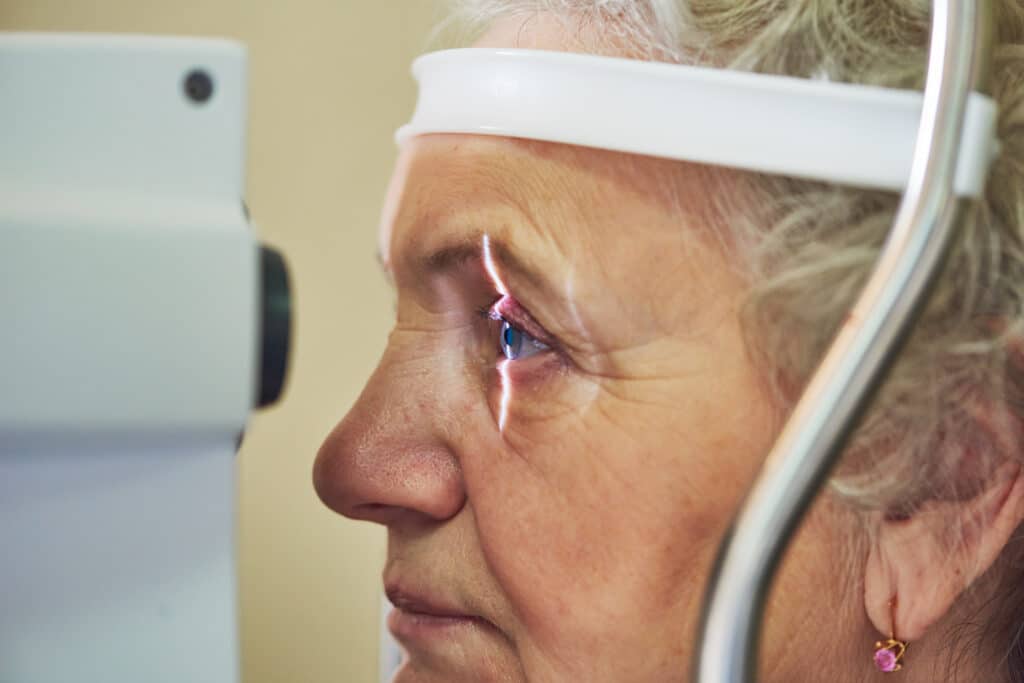Taking Proper Precautions When Considering LASIK Eye Surgery
December 5, 2019
LASIK, a laser surgery to reshape the eye’s cornea to improve visual acuity, has become a popular option for many looking to correct their nearsightedness, farsightedness, or astigmatism. For most patients, the ability to transition off of contact lenses and glasses as a result of LASIK provides a true sense of freedom and convenience.
Roughly eight million Americans have had LASIK (as of 2018) with the number continuing to grow daily. While LASIK has proven to be a highly effective treatment option and has received around a 96-percent satisfaction rate from patients, it is not for everyone. Luckily, there are some great guidelines and indicators to determine who is a good candidate for LASIK and who isn’t.
Given that there are risks associated with any surgery, it is important that you work with a trusted ophthalmologist who can help you determine if you are indeed a good candidate for LASIK. A proper screening of your unique situation can help provide you with a clear assessment, and can also determine if you would be better-suited for a different method of addressing your vision problems. Either way, getting a professional opinion and understanding your options and viability as a LASIK patient will go a long way in preventing potential issues that could arise with the procedure.

What Makes a Good Candidate for LASIK?
- Healthy Eyes — Beyond your standard nearsightedness, farsightedness, or astigmatism, your eyes should be otherwise healthy before considering LASIK. Pre-existing unusual vision problems (like eye diseases, glaucoma, cataracts, eye injuries, and more) or specific eye traits (such as large pupils or dry eyes) should be assessed closely, and may prevent you from being a good candidate for LASIK.
- Overall Health — Good candidates for LASIK should be generally healthy and without any disease or condition that affects your immune system, impairs your ability to heal, or makes you more prone to infections.
- Stable Vision — Your vision, and the deterioration thereof, should be in a relatively unchanging state. Vision (especially from those experiencing near-sightedness) may continue to change throughout the teenage years and beyond, so it is preferable to wait until your vision has mostly stabilized in adulthood before proceeding with LASIK. You must be at least 18 to move forward with LASIK, but older than that is generally recommended.
- Not Nursing or Pregnant — Interestingly, one’s vision may be affected by hormones, so LASIK is not recommended for pregnant or nursing women until their vision has fully stabilized.
While the above are great indications that you might be a good candidate for LASIK, it is important to gain a professional opinion to help inform your decision. Assessing the physical structure of your eye and your eye health should be major considerations before moving forward with this procedure.
What Precautions Should You Take?
- Stay Current with Eye Exams — Having access to your previous vision exams should be a useful tool in determining your eyesight trends and confirming that your vision has stabilized and isn’t continuing to change from exam to exam.
- Stop Wearing Contact Lenses — A few weeks before your surgery, you should stop wearing contact lenses altogether and fully switch to glasses for that time period. Wearing contact lenses actually changes the natural shape of your cornea, which could lead to inaccurate measurements and suboptimal results from LASIK surgery.
- Understand the Risks — It is important to understand that while you may achieve perfect vision nearly right away with LASIK, it may come with some very common side effects. Many who undergo LASIK experience unusually dry eyes for up to six months after the surgery. Glare and halos are also common side effects, but these typically pass or become significantly less prominent within a few weeks. Less common risks including over/under-corrections, infection, inflammation, or flap related issues may require prolonged medication use or an additional procedure
The Path to Clearer Vision Starts Here
Finding the Right LASIK Surgeon
Finding the right LASIK surgeon can feel like a daunting task, but it doesn’t have to be. We understand that for any procedure involving your eyes there may be some anxiety and reservations. Be sure to conduct research to find which surgeon in your area is considered to be an expert at the procedure, as well as which clinic is seen most favorably by former patients. It can also be helpful to ask around your personal network for recommendations for those who have had a good LASIK experience.
One key factor is to be certain that the surgeon has the ability to offer SMILE as well as LASIK. Some patients will have a better outcome with SMILE than with LASIK; however, not every surgeon offers the SMILE procedure.
You should be able to get a sense of the full patient journey, including the severity of side effects from their procedure and the continued contact with a clinic after the procedure has been completed. Look for trends in patient experiences and take note of recurring pros and cons.
What to Look For in a LASIK Surgeon
Once you have assessed patient reviews and feedback, narrow down your options for a LASIK surgeon. It is important to independently verify that the surgeon you are interested in is experienced and reputable in the field so you can move forward with confidence. Some key things to look out for include:
- Experience. It is important to know how many years your surgeon has been practicing and how many LASIK procedures they have performed during that time. It is not uncommon for an accomplished LASIK surgeon to have thousands of procedures completed.
- No Pressure. You should never feel like you are being sold to, pressured, or overly influenced to have LASIK. Meeting with a highly qualified surgeon and their team should feel informative in nature and tailored to your needs. Be wary of “deals” and highly discounted services.
- Board certification. Ensure that your surgeon been certified by the American Board of Ophthalmology, which verifies that they have completed specific training and continuing education in the field so they are up to date with best practices in the industry.
- Licensing. Check the National Practitioner Data Bank or your state’s licensing board to verify your surgeon’s credentials.
Conclusion
LASIK can be a life-changing procedure that simplifies and gives you more freedom in your everyday life, but it is a procedure that isn’t fit for all patients. In-person assessments with an ophthalmologist can help to clarify whether you are a good candidate for the procedure or if you should pursue other avenues of vision correction.
If you do appear to be a good candidate for LASIK, it is important to do independent research to find the surgeon you are most comfortable with for the procedure. Be sure to take the necessary precautions prior to your surgery to ensure the best possible outcome of your LASIK surgery.


